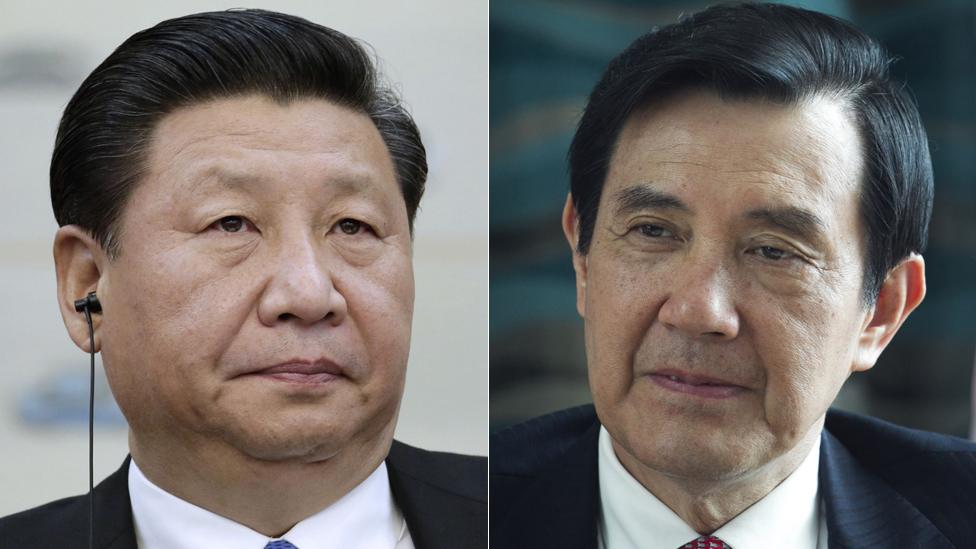What's behind China-Taiwan tensions?
- Published
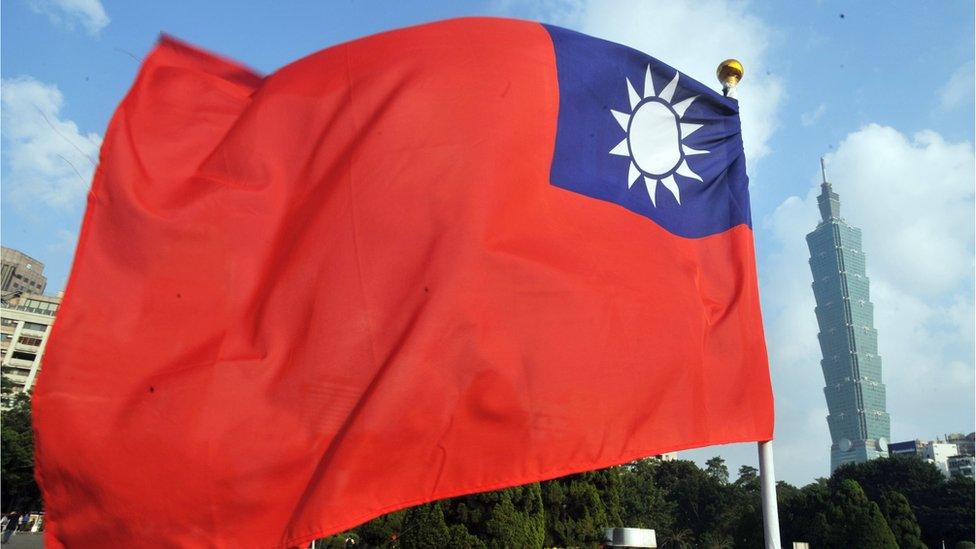
Many Taiwanese see their island as separate nation
China has launched major military drills around Taiwan for the second time this year, simulating a full-scale attack on the island - just days after the Taiwanese President William Lai delivered his first National Day speech.
They come months after drills held, days after Lai was sworn in.
The exercises reinforce what is at the heart of the issue: China's claim over self-governed Taiwan.
Beijing sees the island as a breakaway province that will, eventually, be part of the country, and has not ruled out the use of force to achieve this.
But many Taiwanese consider themselves to be part of a separate nation - although most are in favour of maintaining the status quo where Taiwan neither declares independence from China nor unites with it.
What is the history between China and Taiwan?
Taiwan's first known settlers were Austronesian tribal people, believed to have come from modern day southern China.
Chinese records appear to first mention the island in AD239, when an emperor dispatched an expeditionary force to it - a fact Beijing uses to back its territorial claim.

After a relatively brief spell as a Dutch colony, Taiwan was administered by China's Qing dynasty, before it was ceded to Tokyo after Japan won the First Sino-Japanese War.
After World War Two, Japan surrendered and relinquished control of territory it had taken from China. Afterwards, Taiwan was officially considered occupied by the Republic of China (ROC), which began ruling with the consent of its allies, the US and UK.
But in the next few years a civil war broke out in China, and then-leader Chiang Kai-shek's troops were defeated by Mao Zedong's Communist army.
Chiang, the remnants of his Kuomintang (KMT) government and their supporters - about 1.5m people - fled to Taiwan in 1949.
Chiang established a dictatorship that ruled Taiwan until the 1980s. Following his death, Taiwan began a transition to democracy and held its first elections in 1996.
So who recognises Taiwan?
There is disagreement about the status of Taiwan.
It has its own constitution, democratically-elected leaders, and about 300,000 active troops in its armed forces.
Chiang's ROC government-in-exile at first claimed to represent the whole of China, which it intended to re-occupy. It held China's seat on the United Nations Security Council and was recognised by many Western nations as the only Chinese government.
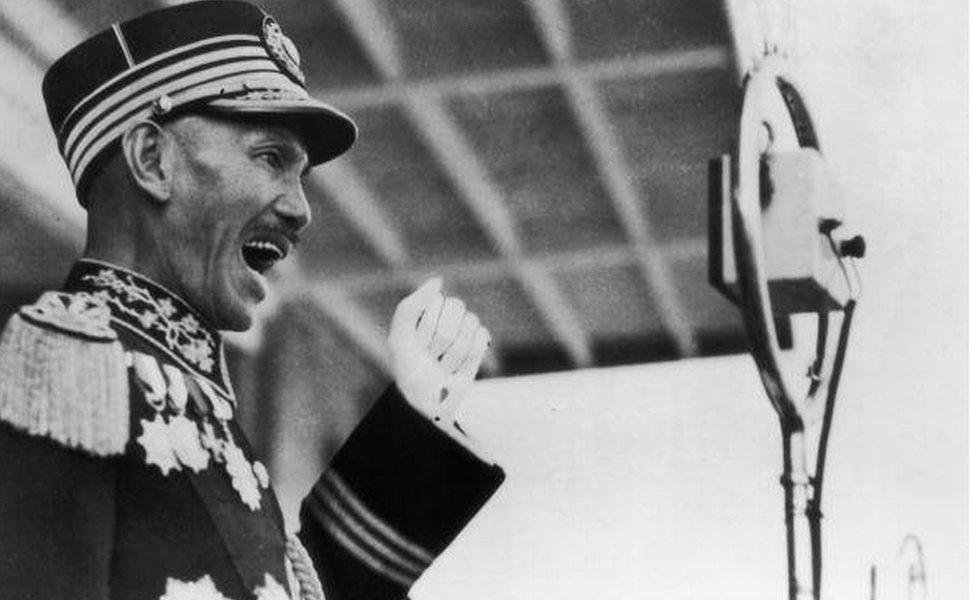
Chiang Kai-shek, once the leader in China, fled with his supporters to Taiwan
But by the 1970s some countries began to argue that the Taipei government could no longer be considered a genuine representative of the people living in mainland China.
In 1971, the UN switched diplomatic recognition to Beijing. Once China began opening up its economy in 1978, the US recognised opportunities for trade and the need to develop relations. It formally established diplomatic ties with Beijing in 1979.
Since then the number of countries that recognise the ROC government has fallen drastically with only 12 countries recognising the island today. China exerts considerable diplomatic pressure on other countries not to recognise Taiwan.
How are relations between Taiwan and China?
Relations started improving in the 1980s as Taiwan relaxed rules on visits to and investment in China. In 1991, the ROC proclaimed that the war with the People's Republic of China was over.
China proposed the so-called "one country, two systems" option, which it said would allow Taiwan significant autonomy if it agreed to come under Beijing's control.
This system underpinned Hong Kong's return to China in 1997 and the manner in which it was governed until recently, when Beijing has sought to increase its influence.
Taiwan rejected the offer, leading Beijing to insist the Taiwan's ROC government was illegitimate - but unofficial representatives from China and Taiwan still held limited talks.
Then in 2000, Taiwan elected Chen Shui-bian as president, much to Beijing's alarm.
Chen and his party, the Democratic Progressive Party (DPP), had openly backed Taiwan "independence".
A year after Chen was re-elected in 2004, China passed a so-called anti-secession law, declaring China's right to use "non-peaceful means" against Taiwan if it tried to "secede" from China.
Chen was later succeeded by the KMT, which favours closer relations with the PRC.
In 2016, Tsai Ing-wen, from the DPP, was elected to the presidency. Under her, cross-strait relations have soured. China also cut off official communications with Taiwan after Ms Tsai took over, saying it was because of her refusal to endorse the concept of a single Chinese nation.
Tsai has never said she will formally declare Taiwan's independence, insisting that it is already independent.
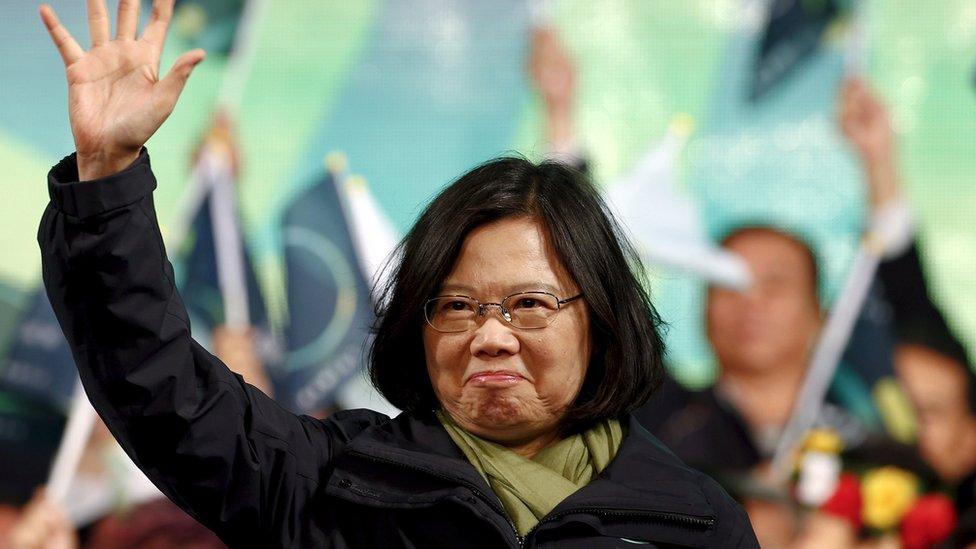
Under Ms Tsai, cross-Straits relations soured again
But Tai's term also coincided with that of Xi Jinping, under whom Chinese claims have grown more aggressive. He has reiterated the message that China will "surely be reunified" with Taiwan, and has set 2049 as a target date for "achieving the Chinese dream".
In January 2024, Taiwan elected Tsai's vice-president, William Lai, as president - a man China has branded a "separatist".
China's drills - dubbed Joint Sword 2024A - came in his first week in office - which Beijing said were a "strong punishment" for "separatist acts". It also singled out Lai as the "worst of all" DPP presidents so far.
The second round of drills - titled Joint Sword 2024B - came days after Lai pledged to uphold Taiwan's self-governing status during a national day speech on 10 October.
What does the US have to do with China-Taiwan relations?
The US maintains official ties with Beijing, and recognises it as the only Chinese government under its "One China policy" - but it also remains Taiwan's most significant international supporter.
Washington is bound by law to provide Taiwan with defensive weapons and US President Joe Biden has said that the US would defend Taiwan militarily - breaking with a stance known as strategic ambiguity.
The island has long been one of the most contentious issue in US-China relations, with Beijing condemning any perceived support from Washington for Taipei. In 2022, after a visit to Taiwan by US Speaker Nancy Pelosi, China responded with an unprecedented show of force, carrying out military exercises around Taiwan in retaliation.
Under President Xi, China has ramped up this "grey zone warfare" - sending record numbers of Chinese fighter jets near Taiwan and holding military drills in response to political exchanges between the US and Taiwan. In 2022, China's warplane incursions into Taiwan's Air Defence Identification Zone (ADIZ) nearly doubled.
The results of the elections will shape the course of US-China relations - and no matter who walks away the winner, will have an indelible impact on the delicate relationship between the US, China and Taiwan.
- Published18 September 2020
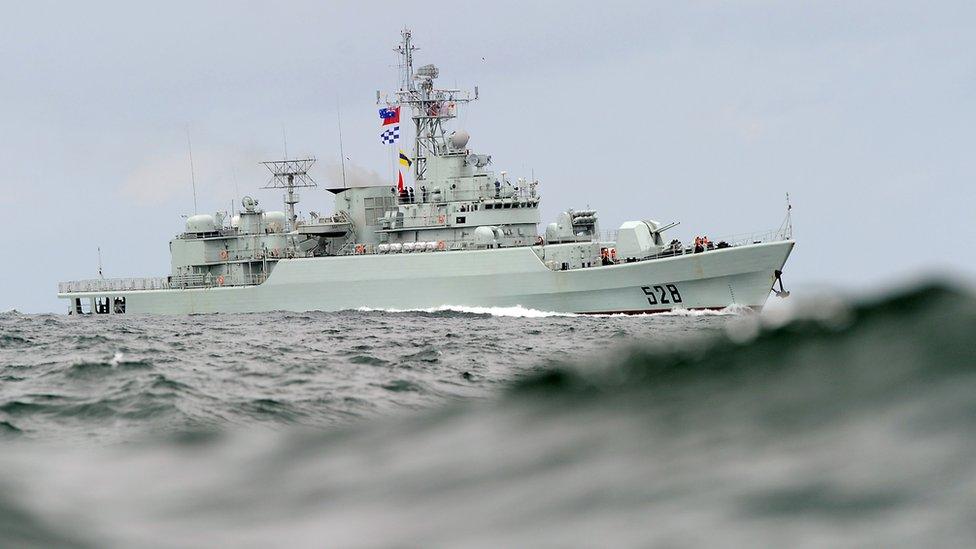
- Published10 August 2020
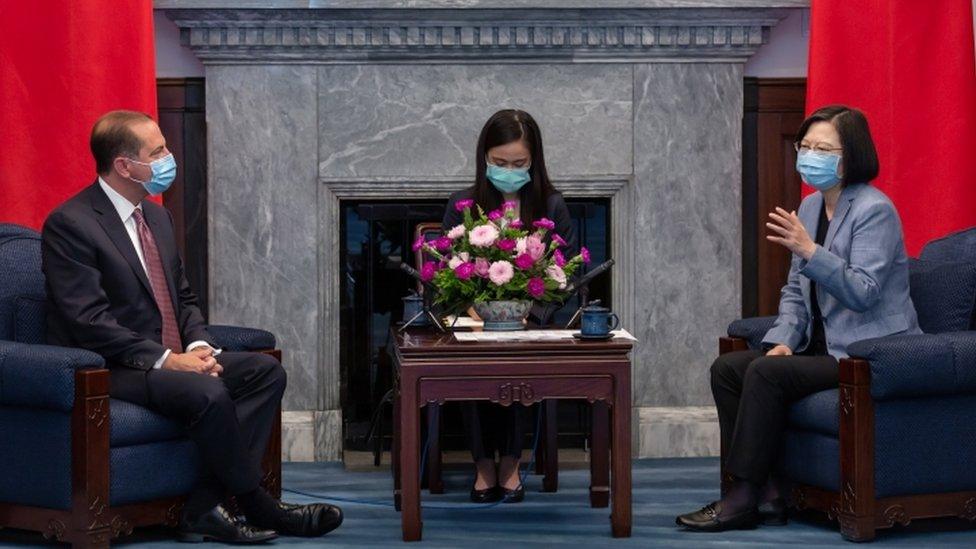
- Published24 July 2020
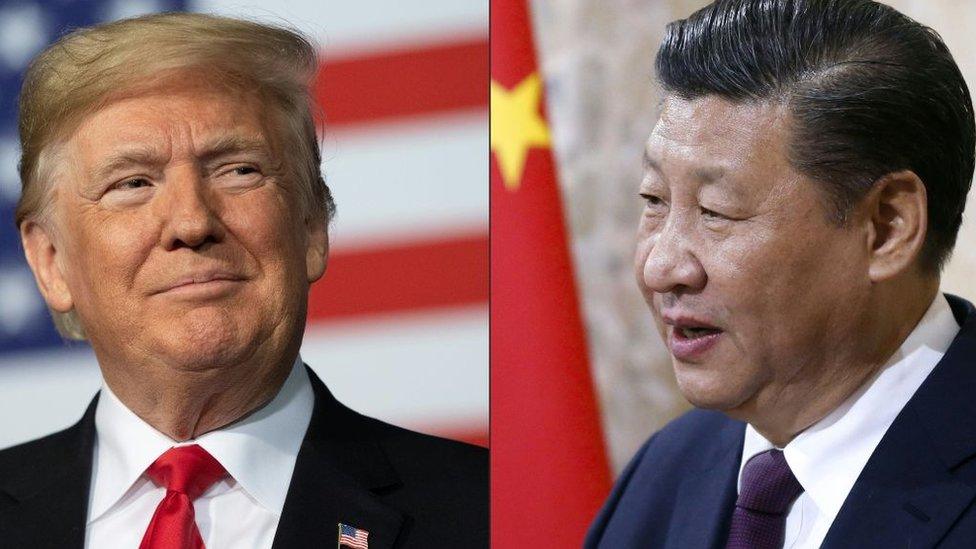
- Published4 May 2015
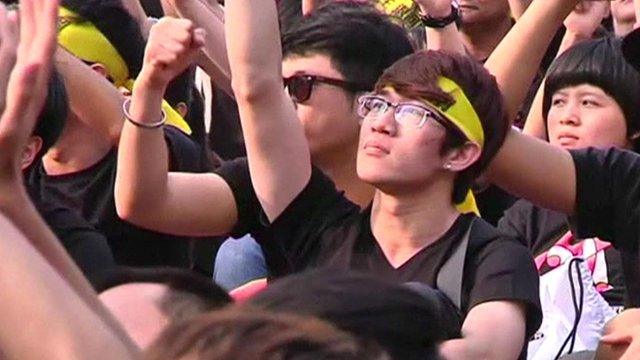
- Published4 November 2015
